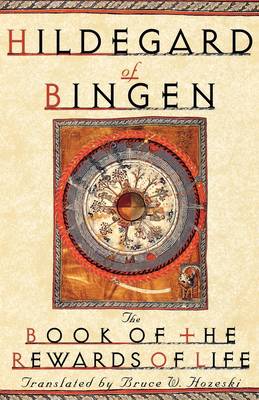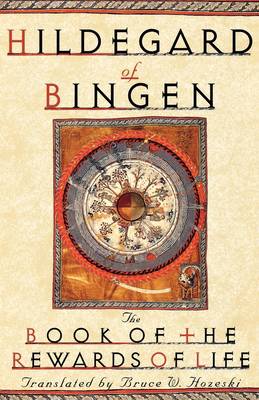
Bedankt voor het vertrouwen het afgelopen jaar! Om jou te bedanken bieden we GRATIS verzending aan op alles gedurende de hele maand januari.
- Afhalen na 1 uur in een winkel met voorraad
- Gratis thuislevering in België
- Ruim aanbod met 7 miljoen producten
Bedankt voor het vertrouwen het afgelopen jaar! Om jou te bedanken bieden we GRATIS verzending aan op alles gedurende de hele maand januari.
- Afhalen na 1 uur in een winkel met voorraad
- Gratis thuislevering in België
- Ruim aanbod met 7 miljoen producten
Zoeken
€ 29,95
+ 59 punten
Omschrijving
Hildegard of Bingen, the first German mystic, is one of the most influential women in European history. Born in 1098 in Bockelheim on the Nahe River, Hildegard had her first vision at the age of six, a phenomenon she would continue to experience the rest of her life. At the behest of the archbishop of Mainz, Hildegard set upon recording her visions in writing. Her writings soon propelled her from Benedictine abbess to celebrity as determined reformer, castigating seer, theoretical musician, patient adviser, and exorcist. A woman of extraordinarily energetic and independent mind, Hildegard wrote profusely throughout her life as a prophet, a poet, a musical composer, a dramatist, a physician, and a political moralist. Indeed, her musical compositions have reached new heights in popularity, highlighting the revival of Gregorian chant currently sweeping the United States. Hildegard communicated with popes and princes, with people of both influence and humble status, always standing above the corruption, misery, and ruin--both spiritual and temporal--of the twelfth century.
The second of Hildegard's three books of visions, The Book of the Rewards of Life (Liber Vitae Meritorum) is a study of the human weaknesses that separates us from God. Written with remarkable visual clarity, it stands as one the most subtle and fascinating works ever written on the relationship of various sins to their corresponding virtues. Divided into six parts, this compelling work focuses on our moral flaws, seemingly inherent in human consciousness, and the role of repentance and the virtues in re-establishing our union with God. The first and only complete English translation of this important medieval work, The Book of the Rewards of Life is indeed a handbook of life.
The second of Hildegard's three books of visions, The Book of the Rewards of Life (Liber Vitae Meritorum) is a study of the human weaknesses that separates us from God. Written with remarkable visual clarity, it stands as one the most subtle and fascinating works ever written on the relationship of various sins to their corresponding virtues. Divided into six parts, this compelling work focuses on our moral flaws, seemingly inherent in human consciousness, and the role of repentance and the virtues in re-establishing our union with God. The first and only complete English translation of this important medieval work, The Book of the Rewards of Life is indeed a handbook of life.
Specificaties
Betrokkenen
- Auteur(s):
- Uitgeverij:
Inhoud
- Aantal bladzijden:
- 320
- Taal:
- Engels
Eigenschappen
- Productcode (EAN):
- 9780195113716
- Verschijningsdatum:
- 27/03/1997
- Uitvoering:
- Paperback
- Formaat:
- Trade paperback (VS)
- Afmetingen:
- 140 mm x 216 mm
- Gewicht:
- 421 g

Alleen bij Standaard Boekhandel
+ 59 punten op je klantenkaart van Standaard Boekhandel
Beoordelingen
We publiceren alleen reviews die voldoen aan de voorwaarden voor reviews. Bekijk onze voorwaarden voor reviews.












